-
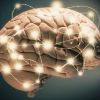 +21 +1
+21 +1Quantum Entanglement in Neurons May Actually Explain Consciousness
how various circuits throughout the brain align their firing is an enduring mystery, one some theorists suggest might have a solution that involves quantum entanglement.
-
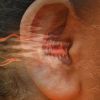 +26 +1
+26 +1We Used to Think Everybody Heard a Voice Inside Their Heads – But We Were Wrong
Only in recent years have scientists found that not everyone has the sense of an inner voice – and a new study sheds some light on how living without an internal monologue affects how language is processed in the brain.
-
 +24 +1
+24 +1Scientists Extend Life Span in Mice by Restoring This Brain-Body Connection
Reactivating the connection in elderly mice revived their motivation, transforming them from couch potatoes into impressive joggers.
-
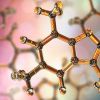 +30 +1
+30 +1Caffeine use prevents stress-induced impairment of spatial memory
A study has found that adding caffeine to the drinking water of rats exposed to social isolation stress can protect them from developing memory impairments.
-
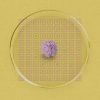 +30 +1
+30 +1Human brain cells hooked up to a chip can do speech recognition
Clusters of brain cells grown in the lab have shown potential as a new type of hybrid bio-computer.
-
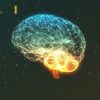 +33 +1
+33 +1Could you move from your biological body to a computer? An expert explains ‘mind uploading’
The feasibility of mind uploading rests on three core assumptions. How plausible is each one, really?
-
 +53 +1
+53 +1Pink Floyd Song Reconstructed From People's Brain Activity
Neuroscientists were able to recreate “Another Brick in the Wall, Part 1″ using AI to decipher the brain’s electrical activity
-
 +15 +1
+15 +1Sleep Deprivation Sometimes Relieves Depression. A New Study May Show Why
Understanding why going without sleep eases depression in some people may lead to less taxing methods to boost mood
-
 +24 +1
+24 +1All animal intelligence was shaped by just 5 leaps in brain evolution
From jellyfish to genius, the amazing diversity of animal minds around us evolved through five major changes in the computational capacity of brains.
-
 +20 +1
+20 +1Scientists have found part of the brain that triggers out-of-body experiences
Scientists have pinpointed a special part of the brain that, when stimulated, appears to produce out-of-body experiences.
-
 +21 +1
+21 +1Synthetic human embryos created in groundbreaking advance
Exclusive: Breakthrough could aid research into genetic disorders but raises serious ethical and legal issues
-
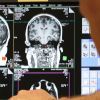 +13 +1
+13 +1The shape of your brain may strongly influence your thoughts and behavior, study finds
Research suggests that the brain's size, curves and grooves may play important roles in its function, perhaps even more than the connections between neurons.
-
 +21 +1
+21 +1NHL enforcers die on average 10 years younger than their fellow players, study finds
A study of former National Hockey League players shows that enforcers who spent a lot of time dropping their gloves or in the penalty box lived significantly shorter lives than their peers. Researchers at Columbia University in New York reached the conclusion after analyzing data from 6,039 NHL players from 1967 to last spring.
-
 +15 +1
+15 +1New Alzheimer’s drug slows cognitive decline by 35%, trial results show
Donanemab is second drug in a year to succeed in trials in what could be ‘beginning of the end’ of disease
-
 +22 +1
+22 +1Brain activity decoder can reveal stories in people's minds
A new artificial intelligence system called a semantic decoder can translate a person's brain activity—while listening to a story or silently imagining telling a story—into a continuous stream of text. The system developed by researchers at The University of Texas at Austin might help people who are mentally conscious yet unable to physically speak, such as those debilitated by strokes, to communicate intelligibly again.
-
 +15 +1
+15 +1Humans struggle to differentiate imagination from reality
The more vividly a person imagines something, the more likely it is that they believe it’s real, finds a new study by UCL researchers.
-
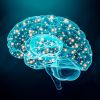 +3 +1
+3 +1Maternal antipathy in childhood is linked to aberrant brain reactions to social reward anticipation in adulthood, study finds
A neuroimaging study of adults with varying levels of adverse childhood experiences showed that participants reporting higher levels of maternal antipathy (in childhood) exhibited reduced activation in the brain reward network when they anticipated social rewards. Normally, activations in brain regions underlying reward processing are elevated when a person is anticipating social rewards. The study was published in Translational Psychiatry.
-
 +2 +1
+2 +1Neuroimaging study reveals anxious dogs have different brains to normal dogs
Dog ownership is a lot of furry companionship, tail wags and chasing balls, and ample unconditional love. However, some dog owners are also managing canine pals struggling with mental illness.
-
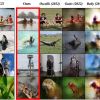 +19 +1
+19 +1From brain waves, this AI can sketch what you're picturing
Researchers around the world are training AI to re-create images seen by humans using only their brain waves. Experts say the technology is still in its infancy, but it heralds a new brain-analysis industry.
-
 +15 +1
+15 +1Eating more magnesium each day keeps dementia at bay
More magnesium in our daily diet leads to better brain health as we age, according to scientists from the Neuroimaging and Brain Lab at The Australian National University (ANU).
Submit a link
Start a discussion




















